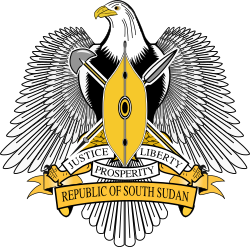 |
|---|
| Constitution |
South Sudan has never had a national election. However the most recent sub-national election was in 2010 for the presidency of the regional government of Southern Sudan [1] and for the bicameral, 170-member Legislative Assembly.
Contents
Voting Age limit is 18 years old and above.
